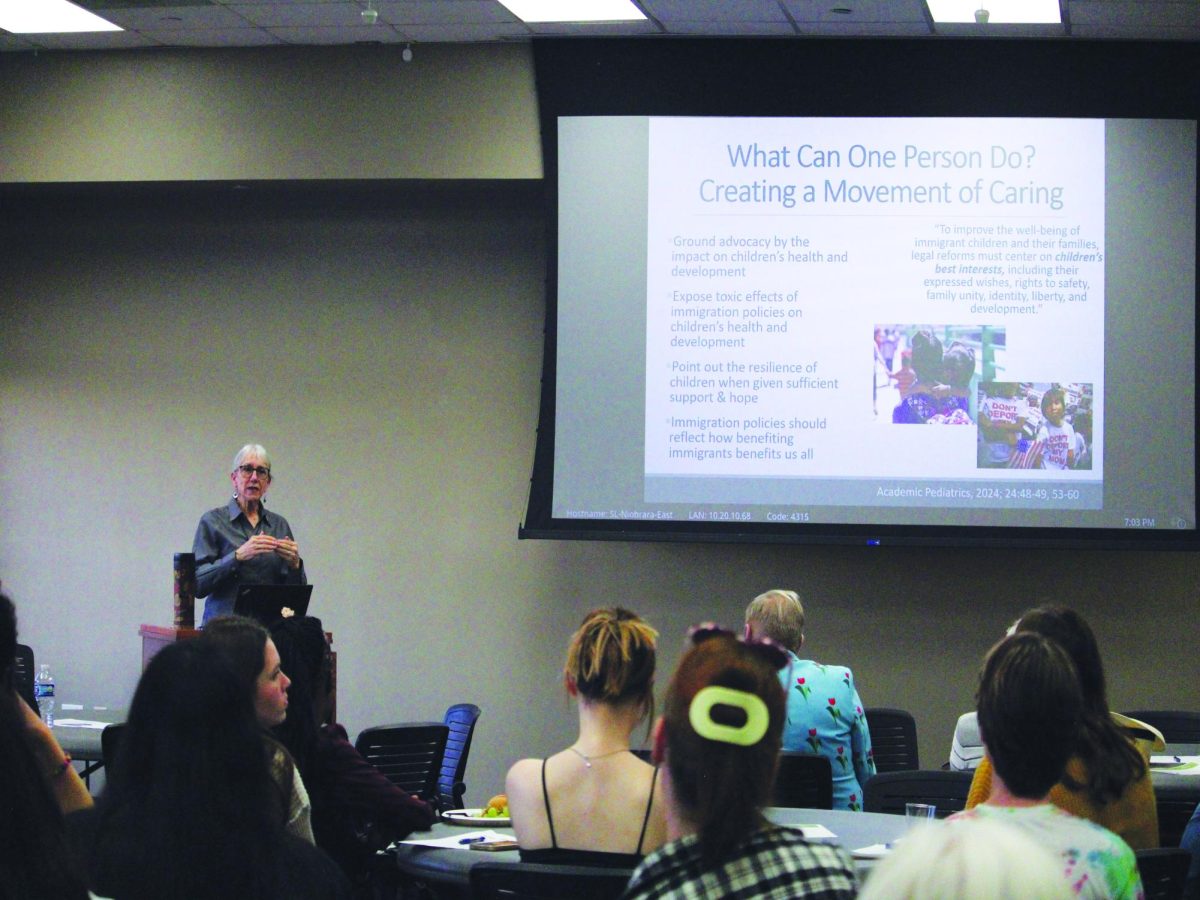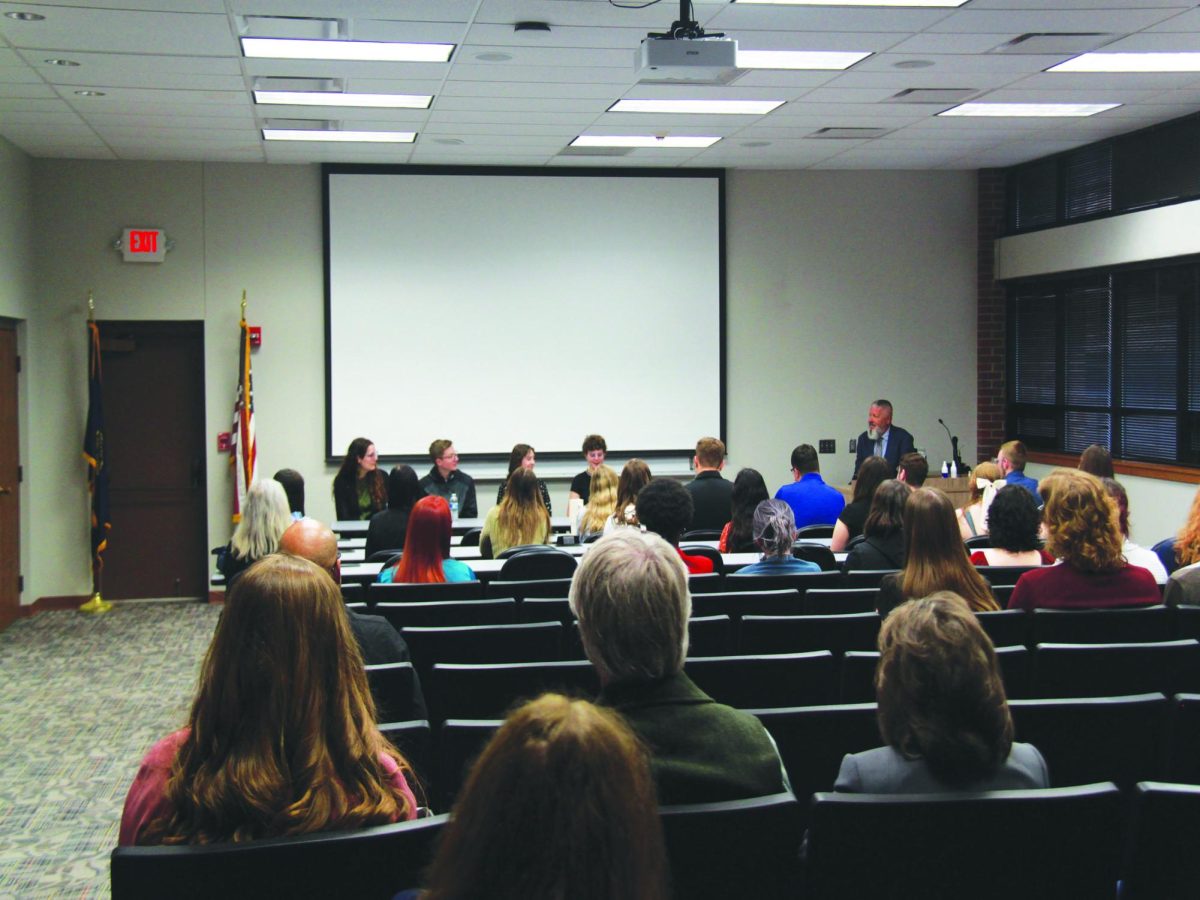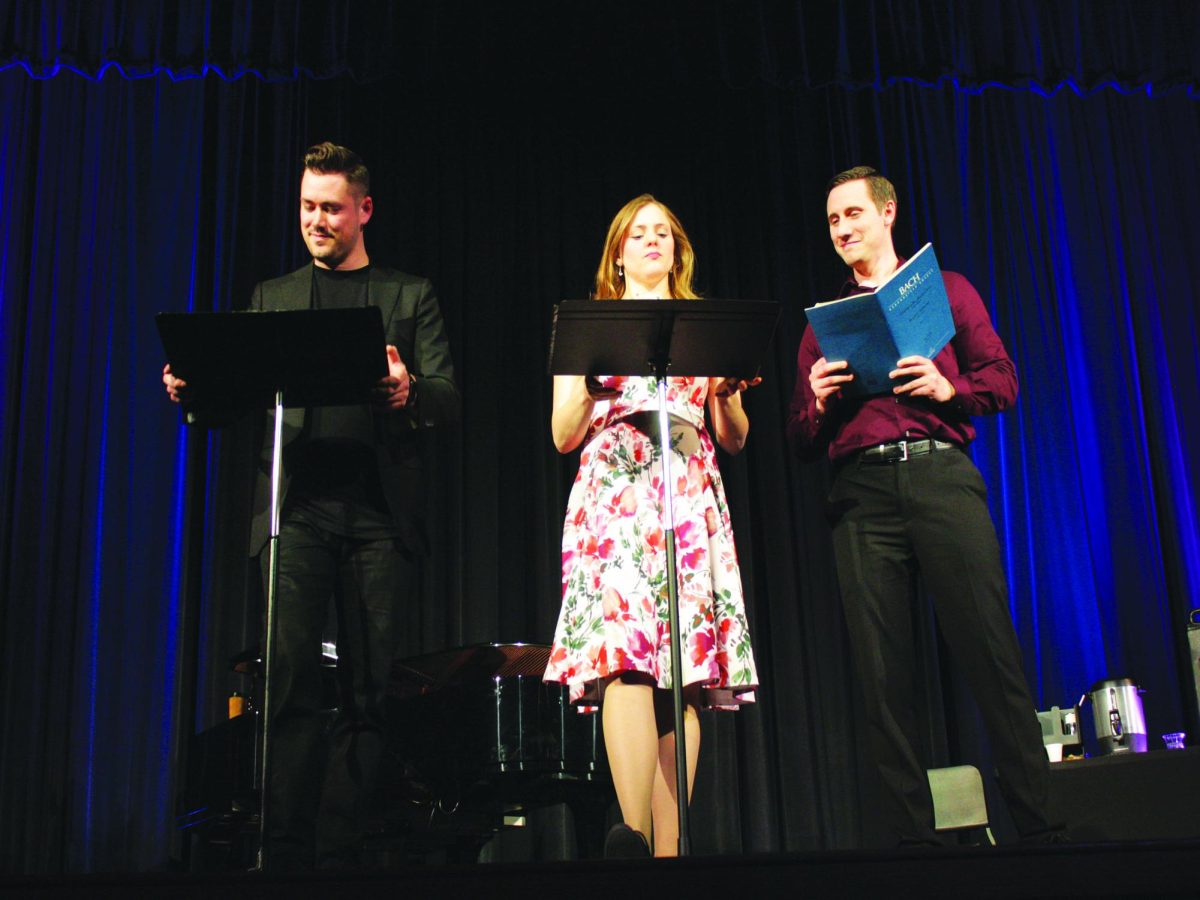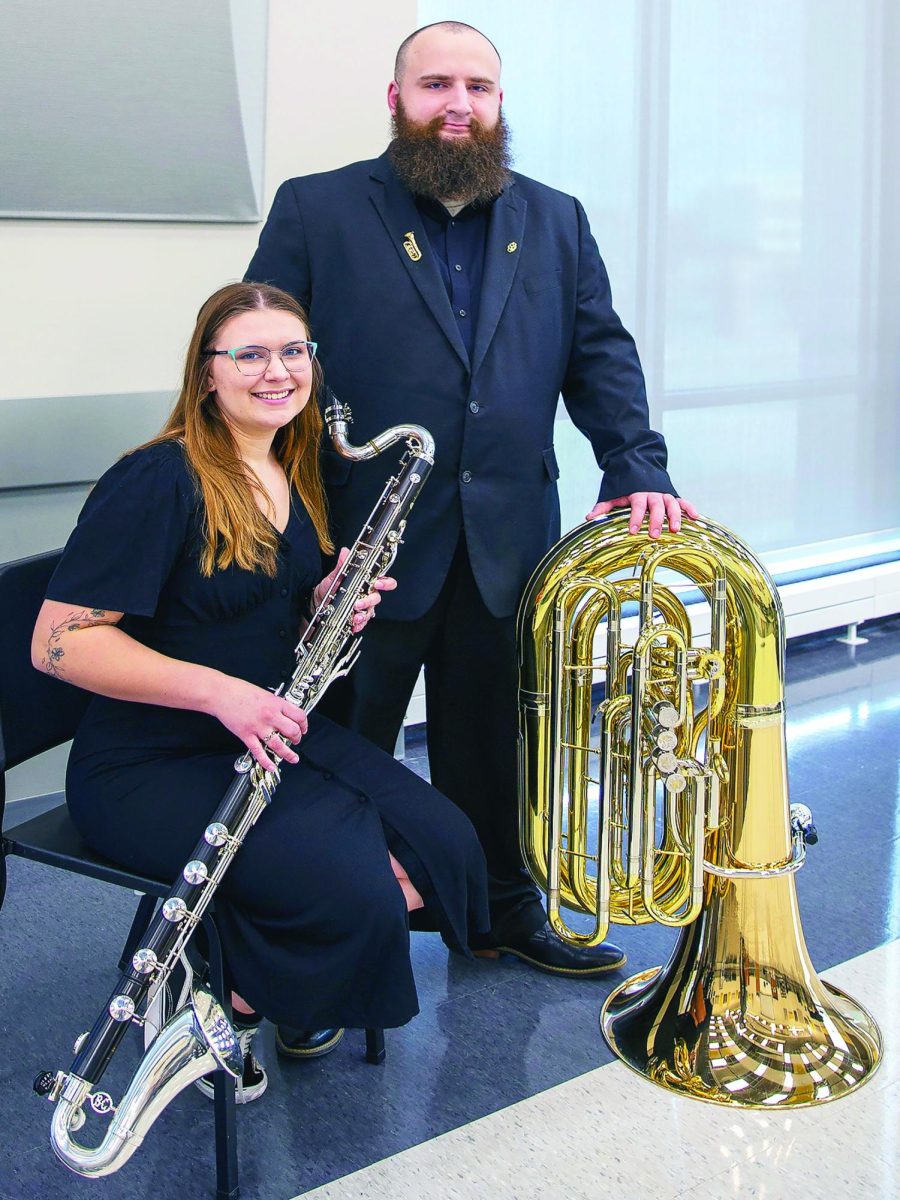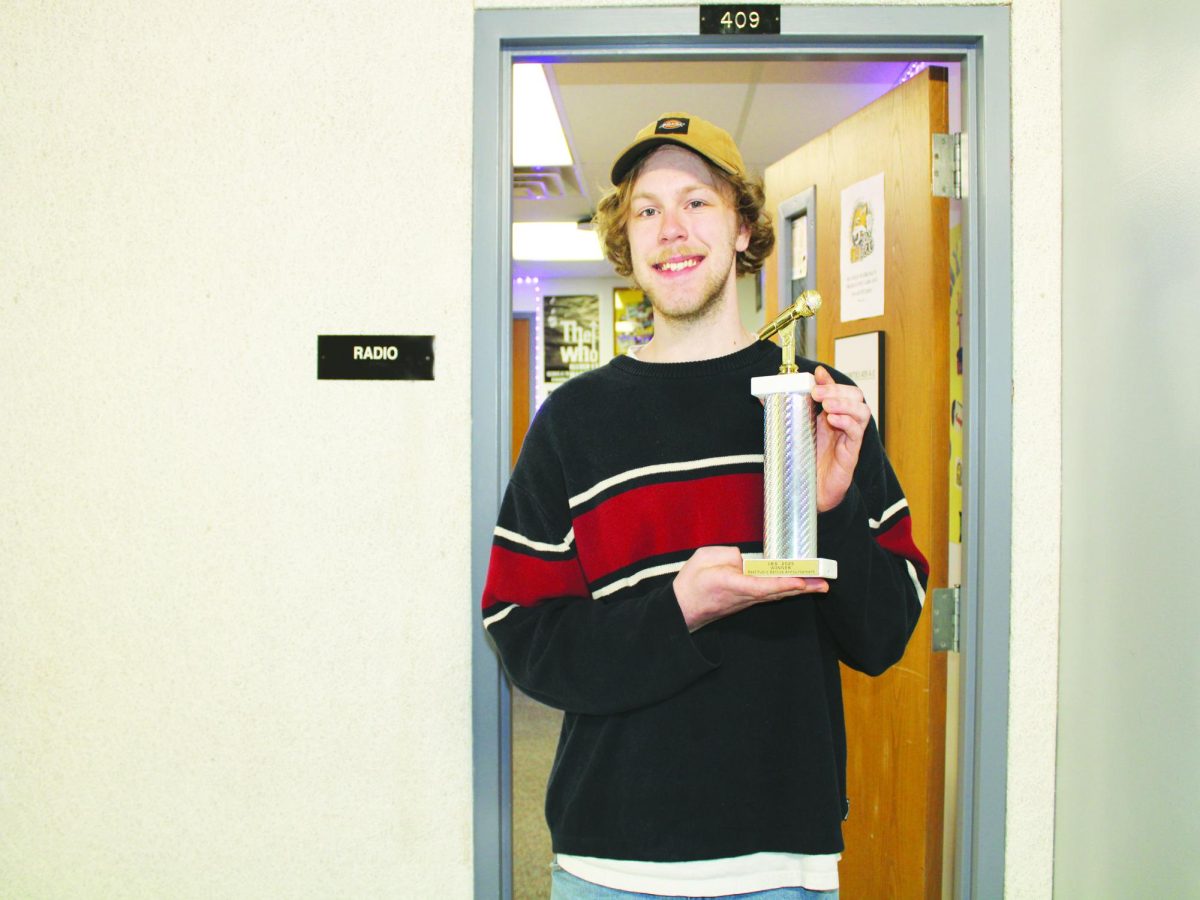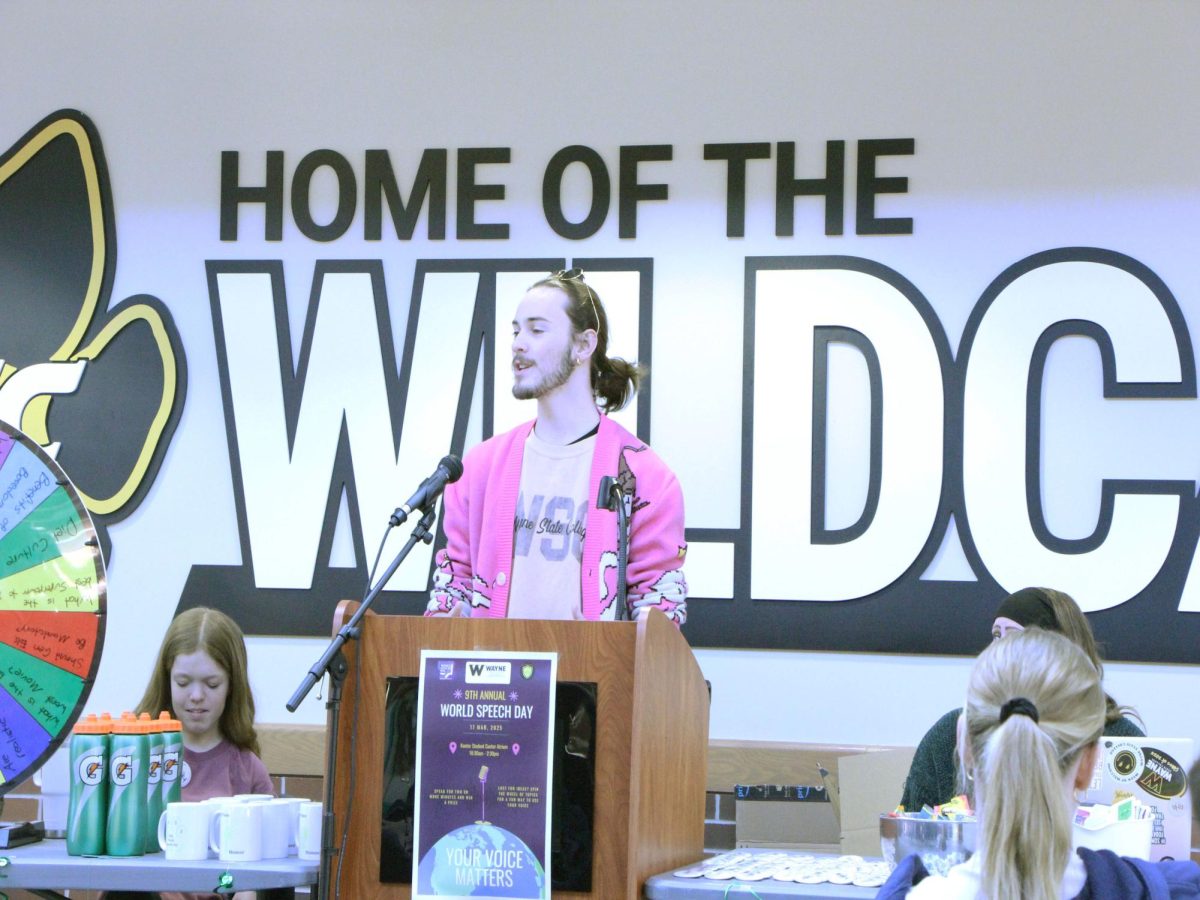Jerome Kills Small, an Oglala Lakota from Porcupine, South Dakota, gave his presentation, “Water: Lakota Spirituality and Science,” on Tuesday, March 12, in the lower level of Conn Library.
Kills Small grew up in with his grandparents, which left imprints on him. He learned the traditions of the Oglala Lakota and was immersed in that life, and he even saw miracles being performed.
After attending the University of South Dakota at the age of 43, Kills Small taught American Indian culture and linguistics classes, such as Native American Oratory. Using his background and studies, Kills Small said he hopes to use his presentation to teach others about the importance of water.
“For me, of course, the main thing is respect for water and helping Mother Earth to gain her strength,” he said.
In his presentation, Kills Small combined Lakota culture and academics to explain the value of water. Kills Small said while at USD, he learned more about the science of certain phenomena explained in Lakota culture. Through his experiences, he understood both scientific and spiritual explanations for different phenomena.
“I was there at the right time and at the right place to know both,” Kills Small said in his presentation.
Kills Small said Bear Butte, a sacred mystical geological formation in South Dakota, occasionally looks like it has a hand reaching up from it. He saw this phenomenon at one point and connected it to the stories of the Oglala Lakota. When he took Physical Geology at USD, he learned the scientific explanation, which “took the mystical away from it,” Kills Small said.
Kills Small opened the presentation with an apology to Mother Earth. He said some people are careless, so people should always apologize in case they do something to harm the world. Traditions in Lakota ceremonies help reflect their respect for water and Mother Earth.
The Sun Dance Ceremonies held by the Lakota includes a dance that lasts four days. During this ceremony, dancers deprive themselves of water, contrasting other religions that drink water for blessings. At the end of the dance, those in attendance raise a hand to the sky, reaching for water. Kills Small said the purpose is to understand how sacred water is through exploring its importance to people’s bodies and the things around them.
The Lakota language also represents how important water is to the Lakota community and traditions. The root word that means water is in many of their words, such as their word for “create.” Kills Small believes water rewards us and makes things grow for us, which is reflected in his words.
“The culture feeds on the language, and, for us, the philosophy too, because we have a lot of sacred instances in our culture.” Kills Small said. “It’s a beautiful language in that it contains philosophy and spirituality. It’s a parallel existence.”
Kills Small said he hopes people can find the significance of the space around them and how the spiritual and science combine to provide that value and significance. He also hopes to keep the language and oral tradition alive.
“Remember the Nebraska Humanities Council, because if it wasn’t for them, oral tradition would not be as vibrant… It makes us continue,” Kills Small said.
Charissa Loftis, the reference librarian in Conn Library, planned the event. She said the Kills Small was the second speaker to come to Wayne State College to present in the library. Loftis said she finds speakers through Humanities Nebraska.
According to the Humanities Nebraska website, “The mission of Humanities Nebraska is to help people explore what connects us and makes us human.” Loftis said Humanities Nebraska provides a list of speakers to choose from, and she applied for grants to pay for speakers to come.
“My goal is to try to help students understand a little better about where they’re at in terms of Nebraska, because not all students are from Nebraska, and not all Nebraska students recognize the value of where they’re at,” Loftis said.
Her hope when choosing Kills Small was to hear more perspectives about water rights in Nebraska, especially since Nebraska is sitting on the Ogallala Aquifer.
“Nebraska was on the front edge in terms of water rights, water usage, and how to protect and preserve that, or how to best manage that,” Loftis said. “I think that we’ve got a role to play in this, and I’d like to hear about what his thoughts and feelings are on this.”








